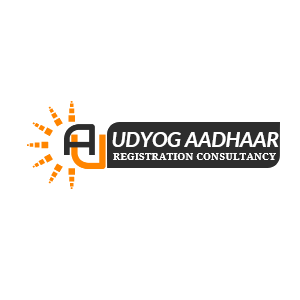Sole Proprietorship Registration
( Udyam + GST Registration )
Procedure for get Sole Proprietorship Registration
1. Fill Up Application Form
Fill the form Correctly and Upload the necessary Document then Submit the Application.
2. Make Online Payment
Make Online Payment Payment to Process Your Application with our Secured Payment Gateway.
3. Executive Will Process Application
After Successful Payment Executive will process Your Certificate.
4. Receive Certificate On Mail
After Successfully Processing We will Deliver Your Certificate on Your Registered E-mail ID.
Benefits having a Sole Proprietorship Registration
We all come across various shops in our locality carrying out small business operations. All these are Sole Proprietorships. They do not involve any complexities and can be handled by a single person in a comfortable manner.
Sole Proprietorships can be started with a very minimal amount of investment at the initial phase. So, it is a great opportunity for those who want to set up a business with low funds as no minimum capital is prescribed for starting a Proprietorship.
Since the Sole Proprietorship involves only a Sole proprietor, hence no separate tax is required to be paid by it. Sole proprietor and the Sole Proprietorship are same for the purpose of calculation of tax liability. The assets and liabilities of the Sole Proprietorship are the assets and liabilities of the Sole Proprietor. Sole proprietor is required to file his/her normal return and show the profits earned in the business in that return itself. Separate return is not required for the Sole Proprietorship firm. Also, the tax is calculated at income tax slab rates applicable to an individual. Other tax liabilities like GST will depend upon the nature of business.
Unlike Companies, Limited Liability Partnerships, etc. where financial statements and audit reports are made public for the users through MCA (Ministry of Corporate Affairs) portal, the financial reports of Sole Proprietorships remain in private hands. Even, the list of all proprietorships is not readily available with the Government officials.
Since the Sole Proprietorship is managed and operated single handed, there is no chance of conflict of ideas or decisions. Sole Proprietors has the right to do whatever he/she thinks is correct for the business.
Sole Proprietorships do not require mandatory registrations under any law. They only require registrations or licenses specific to the nature of business. So, any person can start his/her business easily with a trade name of his/her choice. Any trade name can be used in case it does not clash with any brand name. The name does not require any approval from registry.
Sole Proprietor is the only person who operates and manages the whole business, so 100% of the profits belong to him/her. No one else is entitled to a share in the profits earned.
Since Sole Proprietorships are not governed by any specific law, the legal compliances are minimal. They do not have a pre-defined Certificate of Incorporation or Registration Certificate. So, the compliances depend upon registrations or licenses taken by a particular sole proprietorship. For example, if a sole proprietorship registers itself under GST law, then it will have to comply with the GST return filing, etc. There is no such requirement of uploading the Annual report or other reports on the MCA website.
Sole Proprietorship is not required to get its accounts audited each financial year under any specific law. The audit will depend upon the nature of business and the threshold turnover limits specified for the conduct of the audit. Like, a tax audit is required if the turnover/sales exceed ₹ 1 crores and for professional services, the audit is required if receipts exceed Rs. 50 lakh. Similarly, GST audit is required if the turnover exceeds ₹ 2 crores.

